In today’s digital landscape, protecting your online privacy and security is more crucial than ever. As you navigate the internet, you may have come across two popular tools: Virtual Private Networks (VPNs) and proxy servers.
While both technologies aim to enhance your online experience and safeguard your data, they operate differently and offer distinct advantages. Understanding the key differences between VPNs and proxy servers is essential to make an informed decision about which solution best suits your needs.
Whether you’re a business looking to secure your data and protect your brand or an individual seeking to maintain anonymity and access global content, this article by Proxy 302 will provide you with the knowledge to choose the right tool for your requirements.
Understanding the Basics: VPN vs Proxy
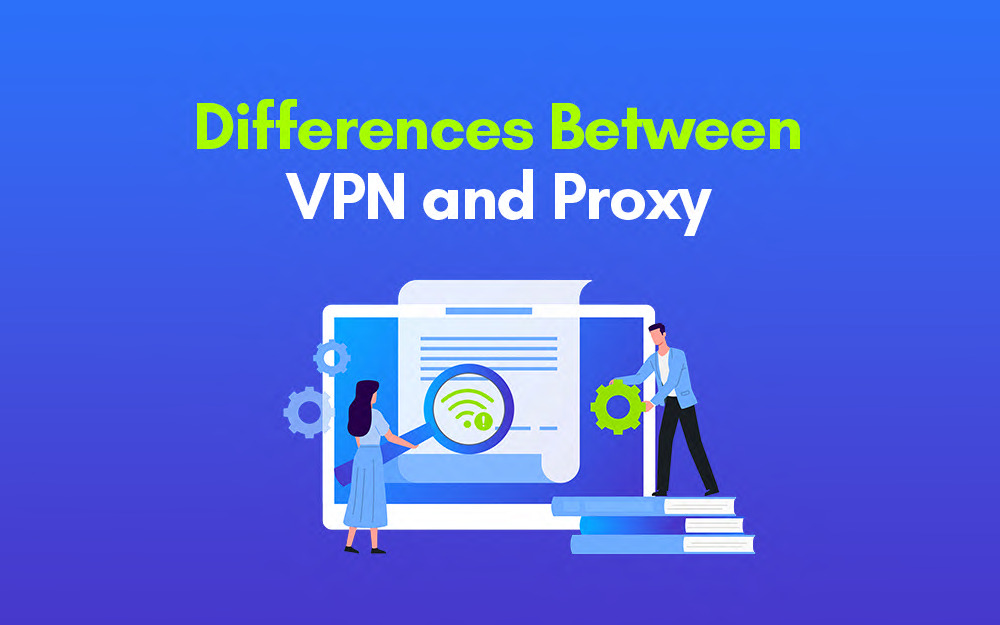
A Virtual Private Network (VPN) is a powerful tool that encrypts all your internet traffic, creating a secure tunnel between your device and the VPN server. This end-to-end encryption ensures that your online activities remain private and protected from prying eyes, such as your Internet Service Provider (ISP), hackers, or government surveillance. By masking your IP address and replacing it with the VPN server’s IP, a VPN allows you to browse the web anonymously and access geo-restricted content from anywhere in the world.
In contrast, a proxy server acts as an intermediary between your device and the internet, masking your IP address for specific applications or websites. When you connect to a proxy server, your internet traffic is routed through the proxy before reaching its destination. This process hides your real IP address, making it appear as though your requests originate from the proxy server’s location. However, unlike VPNs, proxies do not encrypt your traffic, leaving your data vulnerable to interception and monitoring.
Another key difference between VPNs and proxies lies in their level of operation. VPNs function at the operating system level, ensuring that all your internet traffic — including browser activity, apps, and software — is encrypted and routed through the secure VPN tunnel. On the other hand, proxies work at the application level, meaning they only mask your IP address for specific applications or websites you configure to use the proxy. This limited coverage leaves other aspects of your online activity exposed and unprotected.
✅Key Benefits of Using a VPN
A significant advantage of utilizing a VPN is its ability to bolster security through advanced encryption techniques. This encryption secures your internet activities, ensuring that sensitive data remains out of reach from cyber threats, especially on public networks. By creating a secure pathway for your data, VPNs protect your information from unauthorized access.
Another essential benefit lies in the enhanced privacy that VPNs offer. These networks shield your browsing behavior from ISPs and potential eavesdroppers, ensuring your online footprint remains discreet. By concealing your true IP address, VPNs allow you to maintain a high level of anonymity, safeguarding your personal information from being easily traced.
Moreover, VPNs provide the flexibility needed to navigate through regional content restrictions. They enable you to connect to international servers, granting access to a broader range of websites and services typically limited by geographical boundaries. This capability is particularly beneficial for both businesses conducting global operations and individuals seeking diverse online experiences.
✅Advantages of Proxy Servers
Proxy servers offer unique benefits, particularly for users who need efficient and straightforward solutions. A key advantage is their capability to serve as intermediaries in internet connections, enabling users to access specific websites or applications without exposing their actual IP addresses. This function is especially useful for activities like gathering data or bypassing simple regional restrictions, providing a straightforward approach to accessing content without comprehensive security features.
In addition to facilitating access to restricted content, proxies excel at navigating basic network constraints. They can effectively circumvent simple firewalls and content filters, making them ideal for environments where access to certain sites is limited, such as in schools or workplaces. By rerouting internet requests, proxies allow users to reach blocked resources effortlessly, enhancing internet usability without the need for complex configurations.
Another significant benefit of proxies is their ability to cache frequently accessed websites, which optimizes browsing speed and reduces bandwidth use. This caching capability improves the efficiency of internet access by storing copies of often-visited pages, thus speeding up load times and easing network traffic. This feature is particularly advantageous in settings where quick access to information and minimal resource consumption are essential.
Furthermore, proxies are typically lightweight and widely available, often at little to no cost, making them an accessible option for a broad audience. Their simplicity and ease of deployment make proxies an attractive choice for users seeking straightforward methods to achieve IP masking and access control. While they may not offer the robust security of VPNs, proxies serve as effective tools for specific needs requiring uncomplicated internet access solutions.
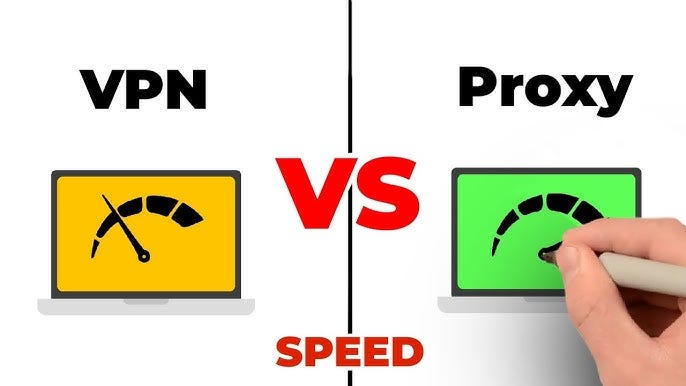
Comparing VPN and Proxy Server Security
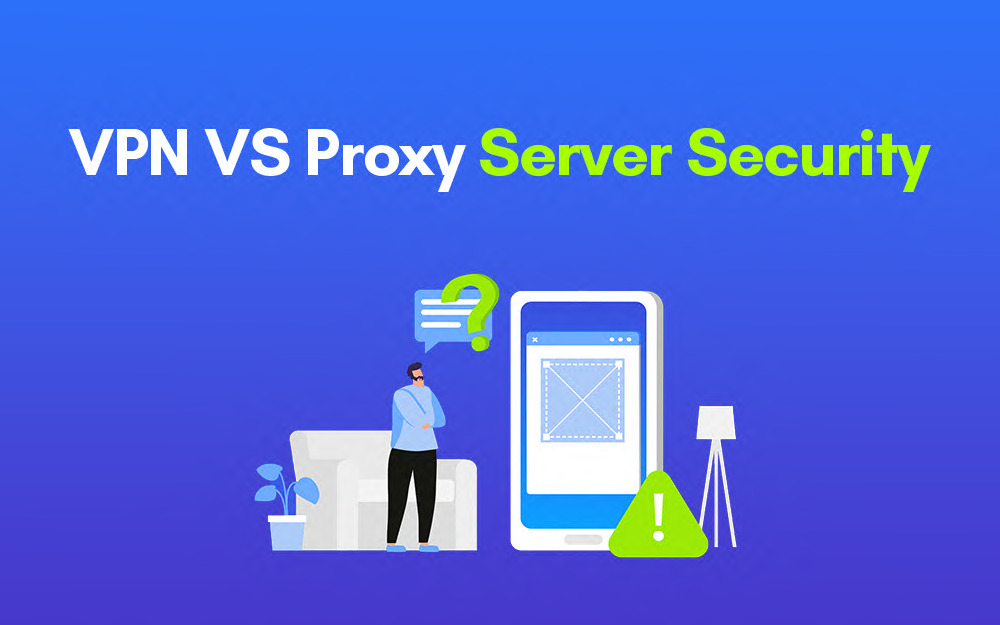
The security distinctions between VPNs and proxy servers are significant. VPNs employ sophisticated cryptographic protocols to secure data transfers, ensuring that information remains inaccessible to unauthorized entities. This high level of security is particularly vital for protecting personal and business data from cyber threats, especially in environments where internet safety is a concern. By establishing a secure connection, VPNs effectively safeguard users against potential data breaches.
In comparison, proxy servers primarily focus on routing internet traffic without offering encryption. This absence of data protection leaves information exposed to potential interception and unauthorized access. The lack of encryption in proxies makes them unsuitable for handling sensitive information, as they do not provide the necessary safeguards against data exposure and manipulation by third parties.
A crucial aspect of security is the defense against man-in-the-middle (MitM) attacks. VPNs mitigate this risk by ensuring that all data transmitted between the user and the internet remains within a secure, encrypted tunnel. This protection prevents unauthorized entities from intercepting and altering communications. Conversely, proxies, due to their lack of encryption and comprehensive security measures, remain vulnerable to MitM attacks, making them less reliable for secure internet usage.
When to Use a VPN vs a Proxy
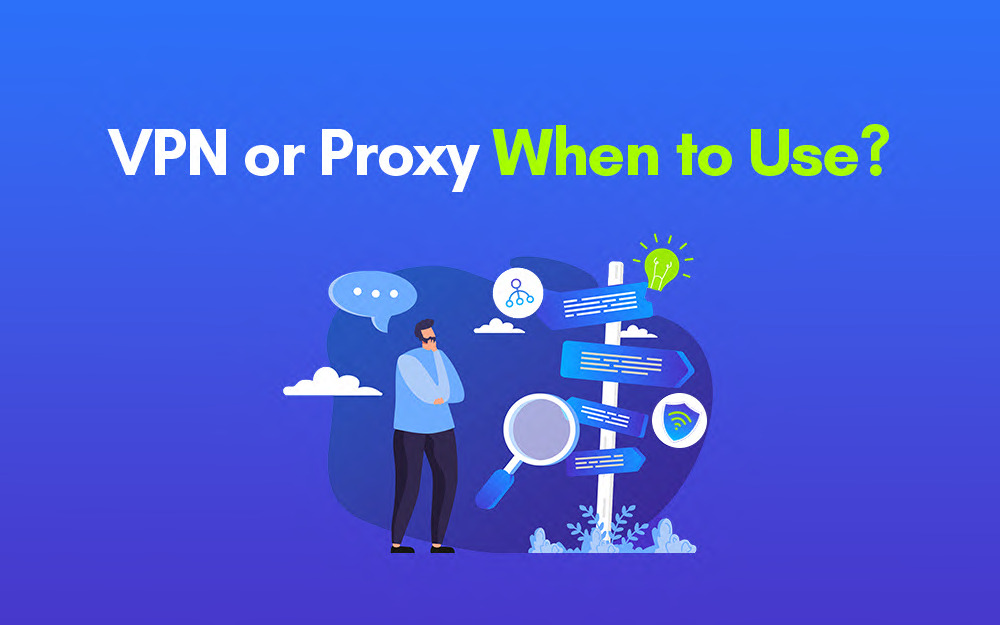
Deciding between a VPN and a proxy hinges on the nature of your online activities and the level of security required. For tasks that demand high-level privacy and data protection, such as handling financial transactions or accessing sensitive corporate information, utilizing a VPN is essential. VPNs ensure that your internet connection is encrypted and secure, making them indispensable in scenarios where data confidentiality is critical.
On the other hand, proxies are advantageous when the priority is to achieve rapid access to content with minimal complication. They are particularly useful for quickly navigating regional restrictions, allowing you to view content from different locations without altering your entire network setup. This capability makes proxies a practical choice for users who need to bypass geographic limitations swiftly.
In environments where security concerns are less stringent, proxies offer an economical solution for accessing blocked websites or content. They allow users to circumvent basic network restrictions, making them suitable for non-sensitive tasks such as browsing public websites or accessing content restricted by simple firewalls. By providing an intermediary route to the internet, proxies serve as a straightforward tool for those seeking efficient access without the comprehensive security protocols of a VPN.
Streaming and Gaming: VPN or Proxy?
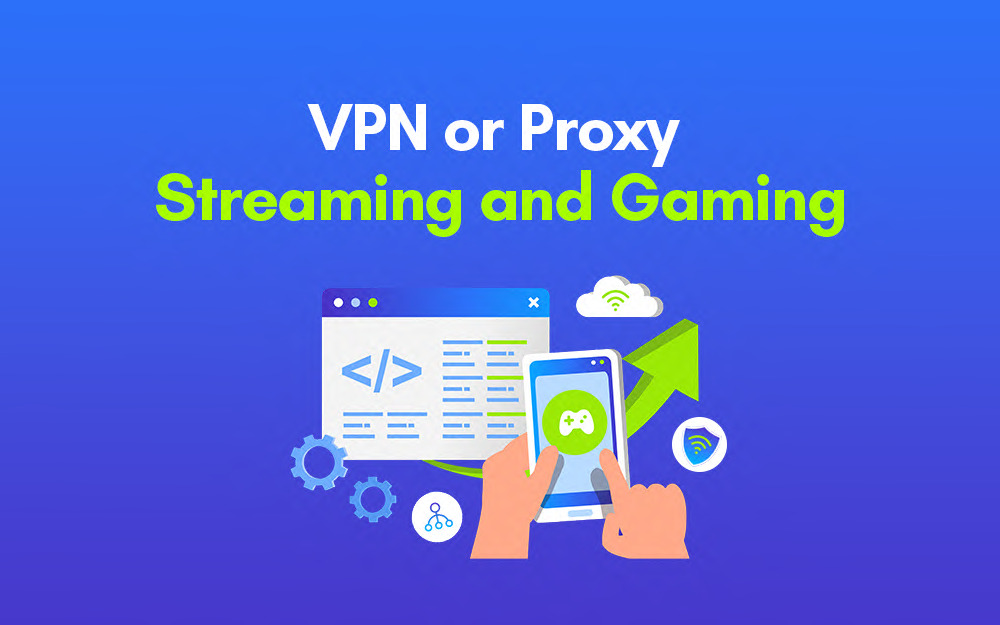
For streaming enthusiasts, VPNs offer significant advantages by allowing access to region-locked content libraries. They are particularly effective at overcoming regional restrictions imposed by streaming platforms, granting users a broader range of viewing options. Moreover, VPNs can help maintain consistent streaming quality by preventing bandwidth throttling, ensuring viewers enjoy a buffer-free experience with minimal interruptions.
While proxies can enable access to some restricted content, they often fall short in providing a reliable streaming experience. Their lack of encryption and robust security measures can lead to inconsistencies in streaming quality, especially when dealing with platforms that enforce strict content delivery protocols. Consequently, proxies may not deliver the smooth and stable viewing experience that streaming enthusiasts seek.
In the gaming world, VPNs enhance the gaming experience by optimizing network pathways and reducing latency, resulting in faster response times. They also offer protection against DDoS attacks by masking the user’s IP address, thereby safeguarding the gaming session from external threats. Additionally, VPNs facilitate access to servers in different regions, allowing gamers to connect with diverse gaming communities and explore new gaming environments without geographical constraints.
Conversely, proxies are less suited for gaming due to their inherent limitations. The absence of data encryption leaves users vulnerable to security threats, and the instability in connection can cause increased latency, disrupting gameplay. Without the comprehensive network configurations that VPNs provide, proxies cannot match the security and performance enhancements that are crucial for a seamless gaming experience.
Top Use Cases Where Proxies Outshine VPNs
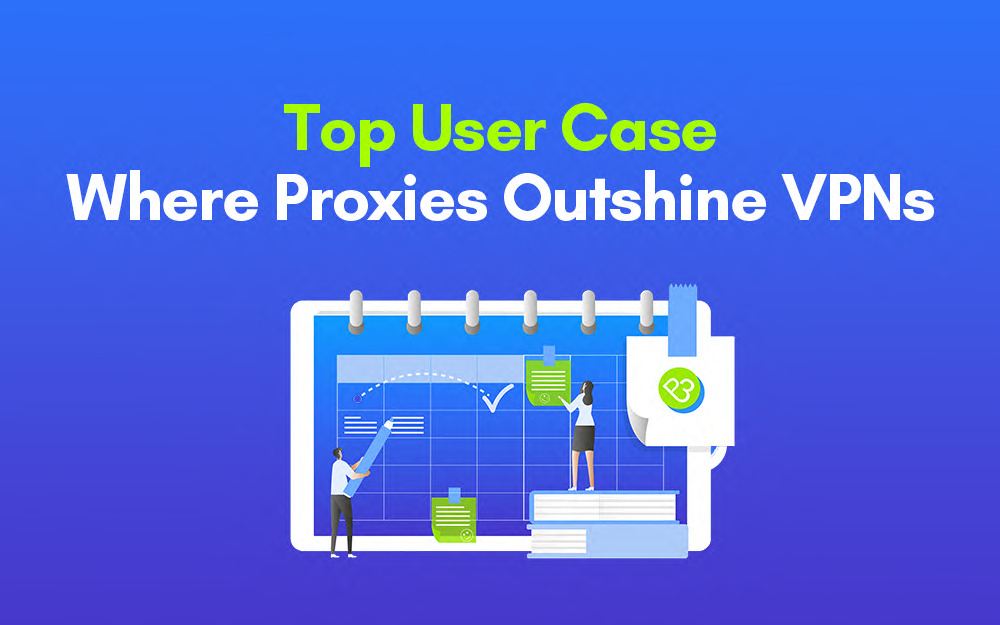
1. Web Scraping
Proxies are indispensable for web scraping tasks. By rotating IP addresses, they prevent websites from detecting and blocking your requests. Unlike VPNs, which may use a single IP address, proxies ensure seamless data collection without raising red flags.
2. Accessing Geo-Restricted Content
Proxies are more effective in bypassing geo-restrictions for non-sensitive tasks like accessing localized websites or online stores. They provide fast connections without the overhead of encryption, which can slow down VPNs.
3. Gaming
Proxies offer lower latency compared to VPNs, making them ideal for gaming. They allow players to connect to servers in different regions, reducing lag and improving gameplay.
Managing multiple accounts on platforms like Instagram or Facebook requires using different IP addresses to avoid bans. Proxies excel in such scenarios, enabling smooth account management without triggering security systems.
5. SEO Monitoring
For businesses tracking search engine results or monitoring competitor websites, proxies are the go-to solution. They allow you to gather localized search results without revealing your actual location, unlike VPNs, which may not offer the same level of flexibility.
6. Content Delivery and Caching
Proxies are widely used in content delivery networks (CDNs) to cache website data and reduce load times for users. VPNs are not designed for such tasks, as their primary focus is on encryption and security.
7. Bypassing IP Bans
If your IP address is blocked by a specific website or platform, proxies can provide a quick solution. They offer new IP addresses without disrupting your overall internet usage, whereas VPNs may not have the same level of agility.
The Future: VPN and Proxy Trends in 2025
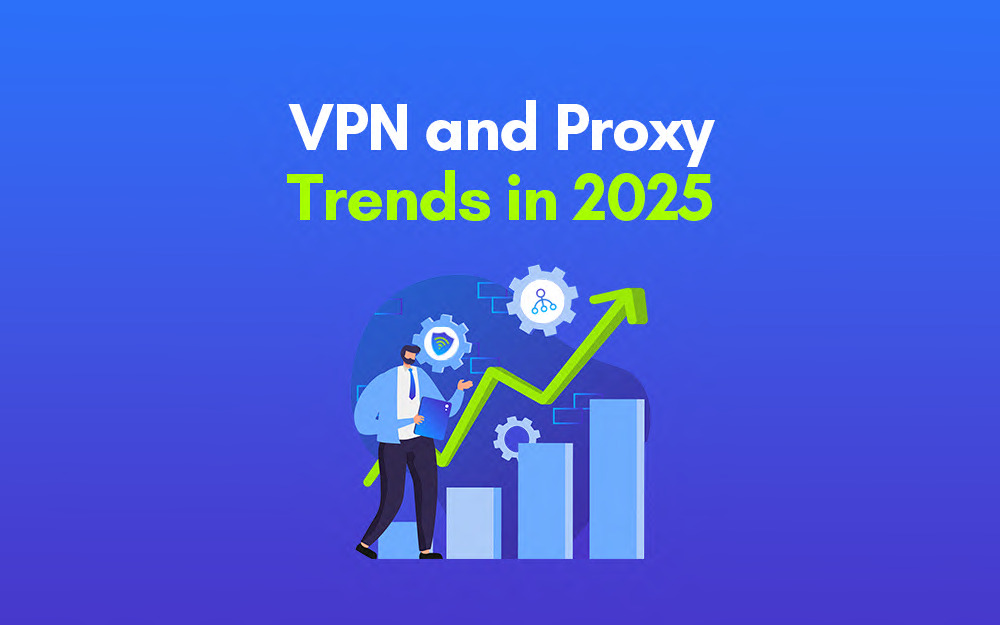
Looking ahead to 2025, the role of VPNs and proxies is projected to undergo significant transformation, driven by heightened awareness of privacy issues and the escalation of cyber threats. As individuals and businesses become more vigilant about protecting their digital identities, the demand for sophisticated privacy solutions is expected to rise. This shift reflects a broader emphasis on cybersecurity, highlighting VPNs as essential tools for data protection in an increasingly connected world.
Innovations in VPN Technology
The advancement of VPN technology will focus on refining encryption protocols and boosting performance. Future developments aim to enhance security measures while maintaining high-speed connectivity, crucial for users who require uninterrupted internet access. These improvements will address the pressing need for secure data transmission across various sectors, ensuring that both personal and professional information remains safeguarded against potential threats.
Additionally, VPN functionality will increasingly be integrated into a wide range of devices and applications. As the Internet of Things (IoT) and smart technologies become more prevalent, embedding VPN capabilities directly into these systems will become vital. This integration will not only fortify the security of connected devices but also provide users with a more seamless and comprehensive approach to online privacy.
The Evolving Landscape for Proxies
The future of proxy servers may face challenges due to regulatory and security considerations. With growing concerns over data privacy and intellectual property, proxies might encounter stricter regulations designed to prevent misuse. These potential changes could impact the deployment of proxies, particularly in industries where accessing content and gathering data are common practices. Adapting to new legal requirements will be essential for the continued relevance and acceptance of proxy services.
Despite these hurdles, proxies will still offer value, especially in scenarios where lightweight and cost-effective solutions are needed. Their simplicity and affordability will continue to appeal to users seeking easy access to restricted content or basic anonymity. However, the focus will likely shift towards enhancing transparency and promoting ethical usage, shaping the development of proxy services in the years to come.
As the digital landscape continues to evolve, staying informed about the differences between VPNs and proxy servers is crucial for making the right choice for your online security and privacy needs. While VPNs offer comprehensive encryption and protection, proxies provide a simple solution for accessing restricted content and masking your IP address. Whether you prioritize security, anonymity, or accessibility, understanding the unique benefits of each technology will empower you to navigate the internet with confidence in 2025 and beyond.

- 👉 Start Your Free Trial Now 👈 and discover how we can help you achieve your goals with our reliable and flexible proxy solutions.

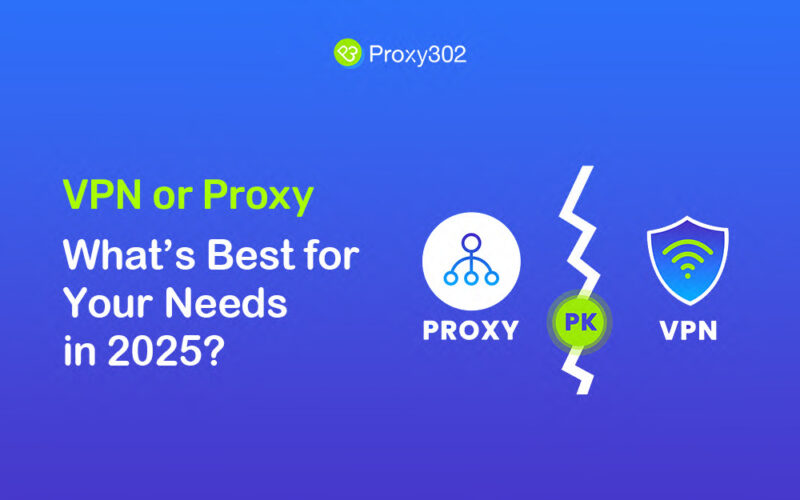
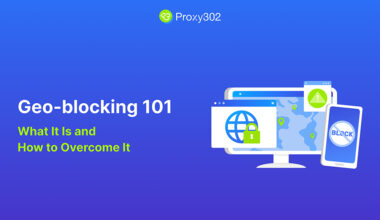

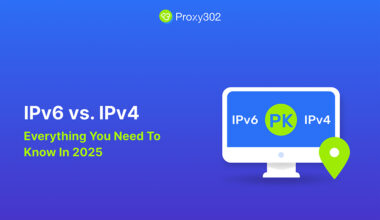
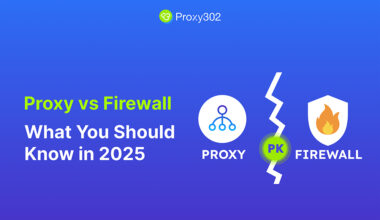
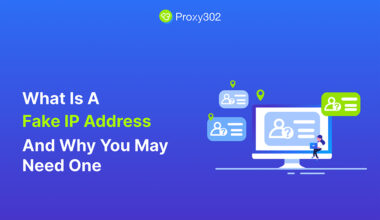
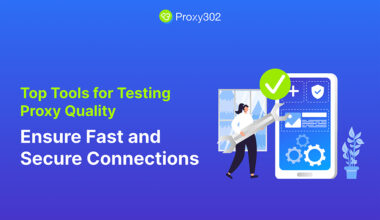
1 comment
I am extremely inspired with your writing skills and also with the structure in your weblog. Is this a paid subject or did you customize it your self? Either way keep up the nice quality writing, it’s uncommon to see a great blog like this one nowadays. !